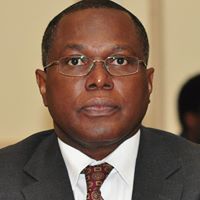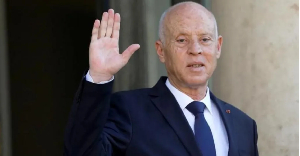Economic Advisor to President Mahama Dr. Nii Moi Thompson has said that unlike America’s African Growth and Opportunity Act (AGOA), African governments were given the opportunity to contribute to the formulation of the European Union’s Economic Partnership Agreements (EPAs) -- which makes them a better deal.
“At least with the EPAs we have had the opportunity to contribute to their formulation; we have objected to certain things to modify certain things. AGOA has absolutely no African input. The Africa Growth and Opportunity Act was created by the United States based on what they think we need and it was simply given to us.
The lady who actually led the formulation of AGOA later on left the US government and became a consultant -- and started charging African governments US$200,000 to explain AGOA to them,” Dr. Thompson said at an EPA sensitisation workshop for the private sector in Accra.
He made a strong case for economic liberalisation, citing the telecoms sector as an example of how many more jobs will be created in the long-run even though a few people may lose jobs initially.
“For every job someone lost at Ghana Telecom I would think that we created a hundred. So the net impact of jobs is what we need to look at...and this calls for conscious government policies so we can monitor the sectors so that whatever jobs that are going to be lost we have the appropriate interventions for them,” he said.
Reacting to concerns about the EU hiding behind standards to resist access to its markets, Dr. Thompson said it is true that some of the Ghanaian exporters simply do not adhere to standards.
He cited a “simple” case of chicken eggs that are exported with faecal matter on them and wondered why anybody would complain if they are rejected.
“Why would we have simple things like chicken eggs having chicken faeces on them? In Ghana we might not care, but the Europeans say ‘no’. They have said they don’t want faeces on their food; if you want it on yours then that is fine.”
Dr. Thompson further argued that with or without the EPAs and AGOA, the country needs to focus on what it does internally to turn its fortunes around. In that regard, he said, resolving the energy crisis will be key.
“I passionately believe that if we resolve the issue of electricity we will have resolved at least 50% of our industrial problems,” he said.
His comments come in the wake of heighted criticism of the EPAs by Civil Society Organisations, who have argued variously that signing the agreements will lead to a crimping of Ghana’s struggling industries.
Research sponsored by ActionAid and published in July 2013 concluded that Ghana stands to lose import-duty revenue worth US$88.6million annually up to 2022 if it signs the EPAs -- under which the 15 participating countries of ECOWAS will open their markets gradually, starting from about one-quarter in 2014 to two-thirds by 2017 and the required 75 percent by 2022.
Government has said will conduct a fiscal impact assessment before it decides to sign onto the Economic Partnership Agreements (EPAs).
It has also said that it will go with the position taken by ECOWAS, of which President Mahama is currently chairman.
Business News of Friday, 23 May 2014
Source: B&FT
Nii Moi extols EPAs over AGOA













